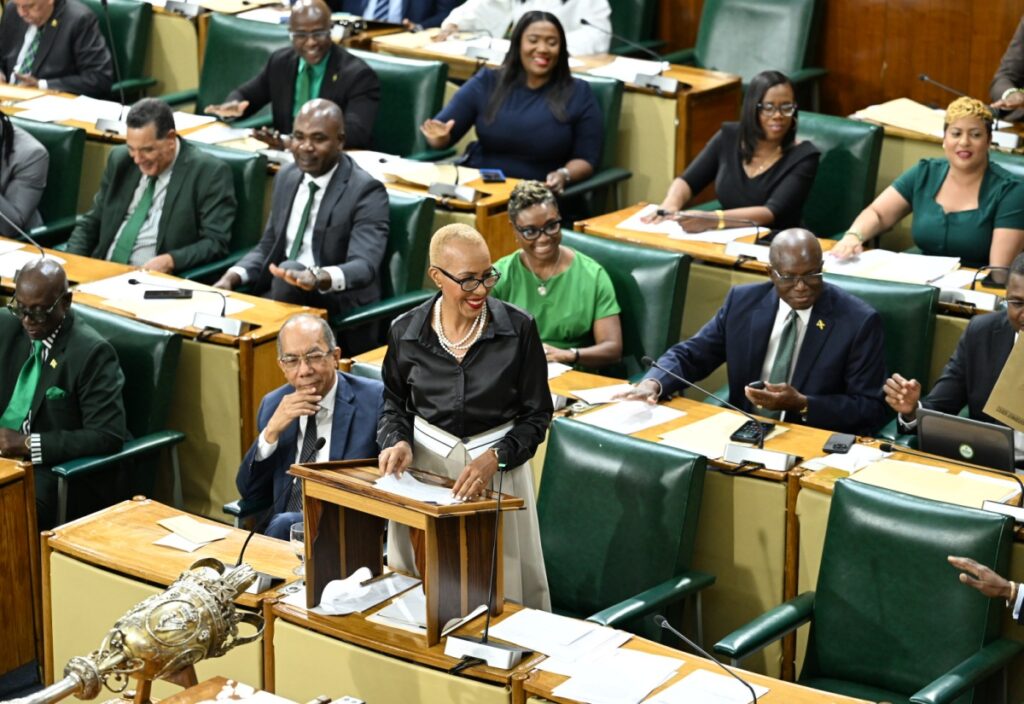

The House of Representatives on Tuesday commenced debate on the Large-Scale Projects and Pioneer Industries (Tax Relief) Act, 2025.
The Large-Scale Projects and Pioneer Industries (Tax Relief) (Application) Regulations, 2025 was also tabled.
Piloting both, Minister of Finance and the Public Service Fayval Williams, said the Income Tax Relief Large-Scale Projects and Pioneer Industries Act, was enacted in December 2013, and took effect on January 1, 2014.
She noted that it coincided with the repeal of a number of legacy incentive legislation that granted sector-specific tax incentives.
“The Income Tax Relief Large-Scale Projects and Pioneer Industries Act accordingly signified a new paradigm shift in the treatment of fiscal incentives. The preference was for a more fiscally responsible approach to tax expenditure and the use of targeted tax credits rather than blanket tax holidays,” Williams said.
“The incentives provided under the Act would only be available to such projects that are considered to make a substantial contribution to Jamaica’s economic growth and national development and are aligned with the strategic priorities of the Government of Jamaica. The Act was, therefore, designed to encourage projects with large capital investments and to stimulate job creation and growth within the economy. Note that the capital investment was not defined,” she added.
Mrs. Williams said notwithstanding that, the income Tax Relief Large-Scale Projects and Pioneer Industries Act took effect on January 1, 2014.
She noted that the legislation was inoperative, partially due to a lack of promulgated regulations. However, based on the interest of stakeholders to utilise the Bill to invest in the economy, steps have been taken to update the Act by way of amendments, as well as promulgate the regulations.
“During the process of these amendments, it was noted that based on the significant number of amendments made to most of the provisions in the legislation, it was determined that rather than an amended Bill, it would be proper for there to be a repeal and replacement of the entire legislation. This would facilitate ease of reading and administration, ensuring a more cohesive Act,” Williams explained.
She said the new Act, entitled the Large-Scale Projects and Pioneer Industries Tax Relief Act 2025, is consequently designed to provide a clear administrative regime for entities that meet the criteria to qualify for a suite of tax incentives determined based on the size and scope of the entity proposing the large investment.
The Act also facilitates the creation of an application and management committee to review applications to ensure that the entities which meet the criteria, are suitable based on the projected plans for economic growth and development of Jamaica.
“Importantly, the Act maintains the provisions that promote transparency and accountability by way of parliamentary scrutiny, both in granting of incentives, which requires the making of an Order that is subject to affirmative resolution and the annual reporting requirements to Parliament in relation to Orders promulgated under the Act, certificates of approval granted in each calendar year and the aggregate tax expenditure incurred in respect of such Orders and certificates,” Williams said.
The Minister said the proposed amendments to the Act, as well as the proposed regulations, will, therefore, serve to reinforce the accountability requirements by introducing a rules-based approach to the approval of applications and a requirement for the Minister to consult with the application and management committee, prior to making his or her determination.
“Simply put, this piece of legislation is aimed at facilitating ease, predictability and transparency in the granting of incentives to entities seeking to invest significantly in Jamaica. The Bill and regulations have been designed so as to create a coherent and self-contained legislative framework, for the granting of fiscal incentives in respect of large-scale projects qualifying for treatment under the Act,” Williams said.
Amongst other things, the Bill and regulations contemplate the amendment of the title of the Act to reflect its expanded scope; inclusion of an application and management committee as part of the approval process; alteration of the definition of approved participant to require incorporation under the Companies Act, to ensure that by definition the said participant is at all times fully subject to Jamaican laws; and insertion of a definition for capital investment to clarify what expenditure qualifies as capital investment for the purpose of qualifying under the Act.
The Bill also provides for a determination as to the capital investment required to be declared an approved participant in the large-scale project at US$1 billion; amendment to the existing definition of specified incentive to clarify the application of the incentive; amendments to the existing Section 3 to allow the Minister a wider power to grant fiscal incentives; insertion of a provision to restrict the period for the granting of incentives under the Act to a period not exceeding 15 years; and the ability to carry forward yearly allotment of incentives.
The legislation also amends the existing Section 4b, so that before the Minister designates a project as an approved large-scale project, the Minister has to be satisfied that there is evidence that both capital investment and job creation are not less than the prescribed amount.
The Bill also provides for an insertion of provisions in relation to the application procedure, including an amendment to introduce an application and management committee as part of the application process and requirements for applicants and their associates to be fit and proper persons.
There is also an insertion of new provisions for the regulation and monitoring of the approved applicant after the application has been approved, including prescribing certain reporting requirements in respect of change in control of ownership; and also actions the Minister may take for breaches under the Act.
Section 12 (3) of the Act is being amended to increase the fine for breach of the regulations to be promulgated to $3 million.
Meanwhile, Williams said the regulations have been crafted in such a manner to clearly set out the requirements for approval, as well as to streamline the application process.
Accordingly, the proposed regulations set out the criteria for approval as a large-scale project, the application process, details in relation to the powers and procedures of the application and management committee and other matters to be prescribed for the purposes of giving effect to the provision of the Act.
The regulations also include the relevant forms to be utilised to apply for the benefit and the necessary documents to be provided as part of the process.
“The regulations also provide for the fees to be charged for each administrative function in the Act and the necessary reports to be provided annually by applicants who are successful in the application process,” Williams said.
Debate on each legislation was suspended.







Comments